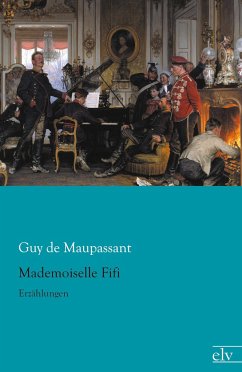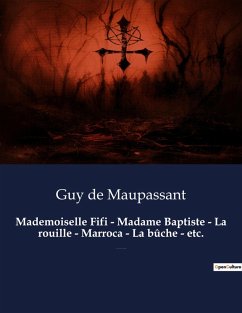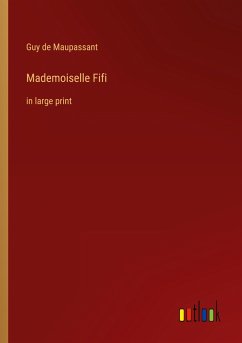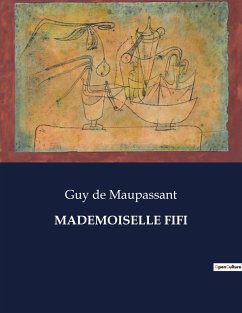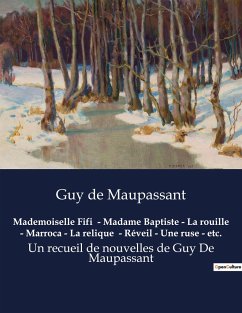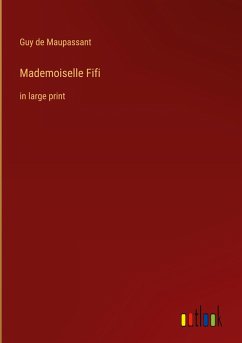
Mademoiselle Fifi and Other Plays
Versandkostenfrei!
Versandfertig in 1-2 Wochen
16,99 €
inkl. MwSt.

PAYBACK Punkte
8 °P sammeln!
Four short French plays that resurrect tales by authors better known for their fiction. MADEMOISELLE FIFI, adapted by Oscar Méténier from a story by Guy de Maupassant, describes an incident during the German occupation of France after the Franco-Prussian War of 1870. The officers of an isolated German regiment send to Rouen for prostitutes, but Lt. Wilhelm, better known as Mademoiselle Fifi, mistreats one of the girls, leading to a fatal confrontation. MEETING, adapted by Lucien Mayrargue from a story by Guy de Maupassant, tells of a sailor who returns home after ten years, only to have his ...
Four short French plays that resurrect tales by authors better known for their fiction. MADEMOISELLE FIFI, adapted by Oscar Méténier from a story by Guy de Maupassant, describes an incident during the German occupation of France after the Franco-Prussian War of 1870. The officers of an isolated German regiment send to Rouen for prostitutes, but Lt. Wilhelm, better known as Mademoiselle Fifi, mistreats one of the girls, leading to a fatal confrontation. MEETING, adapted by Lucien Mayrargue from a story by Guy de Maupassant, tells of a sailor who returns home after ten years, only to have his savings stolen by the pimp of the girl he sleeps with. In JACQUES DAMOUR, by Émile Zola and Léon Hennique, a man believed dead returns home, only to find that his wife has remarried a prosperous butcher. Finally, in Émile Zola's opera libretto, LAZARUS is raised from the dead by Jesus, only to object to being brought back to life. Four great dramas dealing with life--and death!





